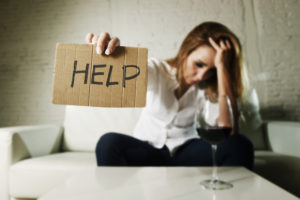Symptoms of Drug Overdose: When to Seek Medical Attention
A drug overdose occurs when an individual has too much of a drug or combination of drugs. The symptoms of an overdose may vary depending on the drug used. Depressants are drugs that slow the central nervous system. They typically decrease breathing and heart rate. Depressants include opioids, benzodiazepines, alcohol and synthetic drugs such as fentanyl and methadone. Large doses of these drugs or a combination may cause brain damage or death. Benzodiazepines such as Valium, oxazepam (Serepax), alprazolam and Xanax are often prescribed for anxiety or sleeplessness. Taking larger quantities than prescribed may cause breathing to slow or even stop. Combining these drugs is especially dangerous. If a drug has not been used for some time, a person’s tolerance can drop quickly. Signs of an overdose of depressants such as heroin, morphine, oxycodone or methadone include:
- shallow or absence of breathing
- gurgling sounds from a partially blocked air passage
- blue lips or fingernails
- disorientation
- not responding to stimuli
- inability to be awakened
People don’t often think about overdosing on alcohol, but it is possible. Binge drinking can lead to acute alcohol poisoning. Drinking large amounts of alcohol more quickly than the body can process it raises the blood alcohol content to a dangerous level. It may cause the heart to stop as well as breathing. Symptoms of alcohol poisoning include:
- vomiting
- seizures
- disorientation
- slowed or irregular breathing
- pale or bluish skin
- stupor
- unconsciousness
- low body temperature
Amphetamines are stimulants, and an overdose may lead to a heart attack, stroke or seizure. The symptoms of an amphetamine overdose differ from those of depressants and include:
- chest pain
- disorientation
- hallucinations
- paranoia
- high temperature
- difficulty breathing
- severe headache
- seizures
- unconsciousness
Never assume someone is asleep if you are unable to get a response from them. An overdose doesn’t always happen quickly. Death may not occur for several hours and getting medical attention during this time could save their life. If someone is unconscious and you are unable to get them to respond, call an ambulance immediately. Snoring or gurgling sounds may indicate a person is having difficulty breathing. This is of major concern in cases where substance abuse involves depressants that slow the body’s functions. Try to wake the individual immediately. If they respond, the restriction of the airway will be resolved with their movement. If unable to wake them, call an ambulance immediately.
Many times people are reluctant to seek medical attention in the case of an overdose because they don’t want the police involved. The police are called only if there is a fatality or in the event of a threatening situation. It’s critical to call for emergency assistance if someone is experiencing:
- unconsciousness
- seizure
- severe headaches
- chest pain
- difficulty breathing
- paranoia or extreme agitation
While waiting for the ambulance, stay with the person and offer reassurance. If they are unconscious, try to get a response. If they have stopped breathing, commence CPR. Emergency operators can provide instructions. An amphetamine overdose may cause the person to feel hot and anxious. Try to keep them cool and in a quiet environment. Be prepared to provide medical professionals information on the type of drug that was taken and the amount, if possible.
Northbound Treatment Services has a nationally recognized and award winning addiction recovery program that can help end substance abuse before it reaches the stage of an overdose. Northbound offers a variety of residential and outpatient treatment programs to help patients through the recovery process while remaining productive in society. They provide individual treatment plans to assist patients through each step of regaining control of their lives. If you or someone you love needs help for drug or alcohol addiction, contact us today at (866) 538-4356.
Author
-

President, CEO & Founder at Northbound Treatment Network
Paul Alexander is the CEO, President & Founder of Northbound Treatment Network in Newport Beach, California. He believes wholeheartedly in transformational leadership, organizational health and effective, fully integrated substance use disorder and mental health treatment. With over 27 years of experience in behavioral healthcare, Paul has extensive knowledge of “in vivo” treatment modalities, clinical development, operations, strategy, marketing and financial planning. He has been widely recognized for his development of collegiate-based residential treatment programs for students in recovery and authored a research study at The University of California confirming this modality’s effectiveness.
Paul’s comprehensive professional experience, willingness to innovate, and emphasis on organizational health are vital factors in Northbound’s continued success. Paul received his Certified Addiction Treatment Specialist training at Saddleback College in Mission Viejo, CA, and was awarded Outstanding Alumni Service Award in 2002. Paul holds a Bachelor of Arts degree in Criminology, Law and Society, Summa Cum Laude, from University of California, Irvine, and a Juris Doctorate degree from Loyola Law School of Los Angeles. Paul currently serves on The National Association of Addiction Treatment Providers (NAATP) board. In addition, he serves on The Family Recovery Foundation board and The CarePossible board in Orange County; both organizations are committed to raising funds for family recovery and treatment for former military personnel. Paul is in recovery himself and lives in Orange County with his wife Silvana and his two young sons, Noah and Dean.










